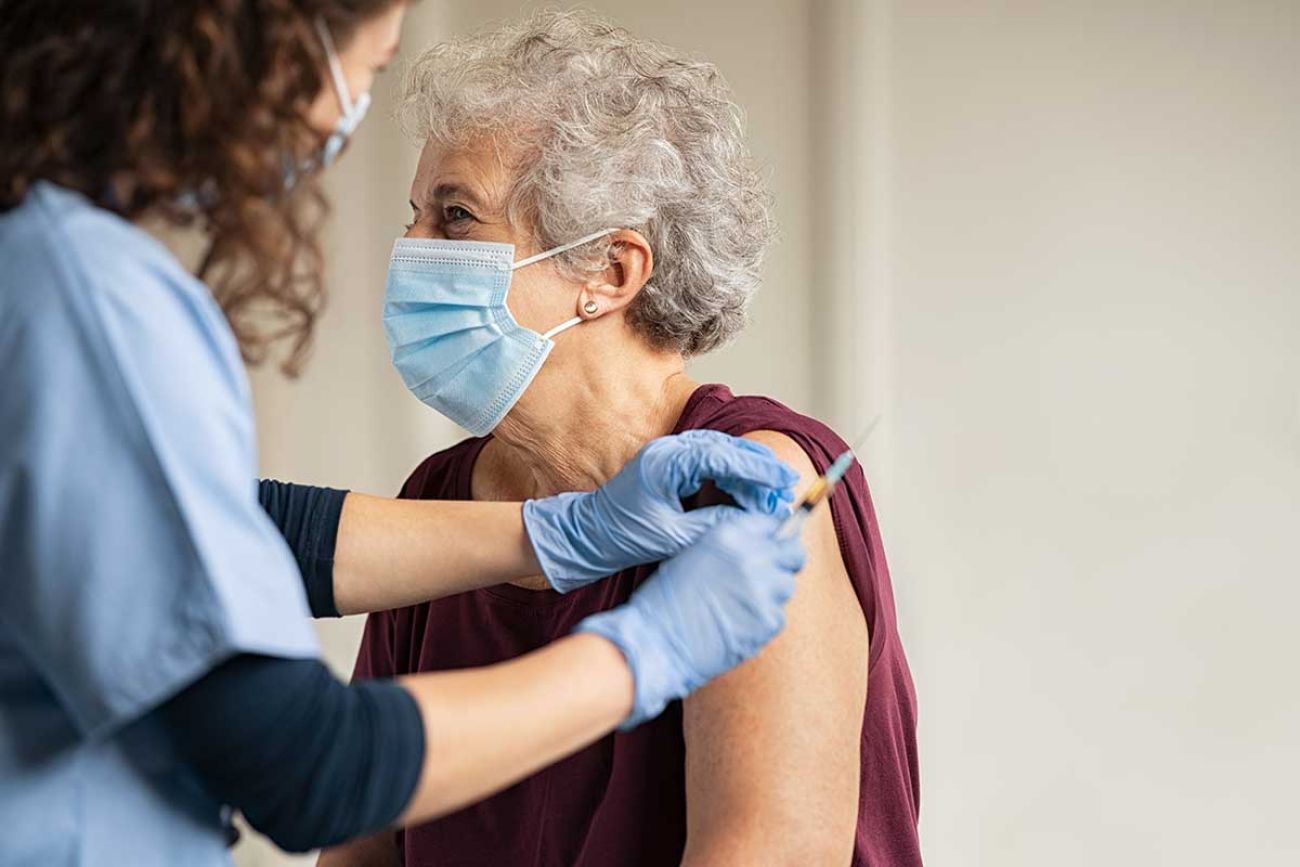Local transit systems in Michigan take lead on COVID vaccines for homebound

With thousands of homebound older adults and other vulnerable groups still awaiting COVID-19 shots, transit systems around Michigan are gearing up to ensure that lack of a ride won’t hold them back.
“There is no reason we can’t come together and get this done,” said Bradley T. Funkhouser, CEO of the Capital Area Transportation Authority (CATA), which serves much of the greater Lansing area.
“There shouldn’t be any barriers to getting a vaccination."
An official with a statewide nonprofit that represents local transit systems has called on systems to redouble efforts to give rides for vaccinations anywhere transportation is a barrier, part of a campaign called “Ride to Your Dose of Hope” that is to be announced at a planned news conference Monday at 9 a.m. in Lansing.
‘It is something we can pick up on a statewide basis,” said Clark Harder, executive director of the Michigan Public Transit Association.
“There are 80 transit agencies in the state of Michigan. There’s no reason we can’t have participation from all of them.”
According to preliminary figures from the Michigan Department of Transportation, transit agencies around the state furnished more than 700,000 on-demand rides to older adults and the disabled in 2020, an indication of how large this transportation-challenged group is.
As of Friday, Michigan had administered at least an initial dose of an approved COVID-19 vaccine to about two-thirds of the overall population age 65 and above, a total of about 1.2 million first doses. That still left nearly 600,000 older adults unvaccinated, according to the state’s coronavirus dashboard.
Over the past few weeks, Funkhouser said, CATA and transit systems in Clinton and Eaton counties have partnered to give rides to vaccination sites to more than 730 homebound senior adults, the disabled and low-income individuals.
To arrange a ride in the three-county region, Funkhouser said individuals with proof of an appointment for vaccination may call any of the three agencies (linked above) to arrange a ride, typically provided by small buses that pick up riders at their home, wait at the vaccine site and return riders back home afterward.
“We will not deny anyone a ride. We will get people from point A to B.”
Health officials say these on-demand rides are critical to bridging a key gap in access to vaccines.
“Vaccine equity is absolutely essential to reaching community-wide protection against COVID-19,” said Linda Vail, health officer with the Ingham County Health Department.
“We know that barriers exist within communities that have been disproportionately impacted by this virus, including transportation, so this partnership is key to breaking down those barriers and increasing vaccinations.”
In Kent County, advocates for older adults said transit networks, including one funded by the county’s senior millage tax, have furnished on-demand rides to vaccine clinics to older adults and the disabled for weeks.
“This has been very beneficial,” said Jackie O’Connor, executive director of the Area Agency on Aging of Western Michigan.
But even with those ride links, O’Connor said, there are hundreds of homebound older adults afraid or unable to leave home to get vaccinated.
“I have a list of 800 of these people right now. Sometimes, it’s a mobility issue. I’ve had people tell me they just can’t get someone in the car. If they have dementia, they might not like crowds or they don’t like noise.”
Other states are taking steps to get vaccines directly to homebound residents.
In Florida, officials planned to expand a program that administered shots to more than 1,500 homebound residents inside their home by strike teams of state workers and local fire-rescue and paramedic teams.
“This is wonderful news for many vulnerable homebound Floridians without access to transportation,” that state’s director of AARP said.
In Texas, the Texas Division of Emergency Management and Texas Military Department are working with local jurisdictions to set up drive-thru vaccine clinics or administer COVID-19 shots directly to homebound seniors.
As Michigan races to get vaccines to as many people as quickly as it can, O’Connor of the Area Agency on Aging conceded it could be while before all in this hard-to-reach group are able to get shots.
“We are trying to figure out who in the community is going to be able to go out to the homes to give shots. Right now, the community partners who are (giving shots) are tied up in the large vaccination sites.”
See what new members are saying about why they donated to Bridge Michigan:
- “In order for this information to be accurate and unbiased it must be underwritten by its readers, not by special interests.” - Larry S.
- “Not many other media sources report on the topics Bridge does.” - Susan B.
- “Your journalism is outstanding and rare these days.” - Mark S.
If you want to ensure the future of nonpartisan, nonprofit Michigan journalism, please become a member today. You, too, will be asked why you donated and maybe we'll feature your quote next time!







